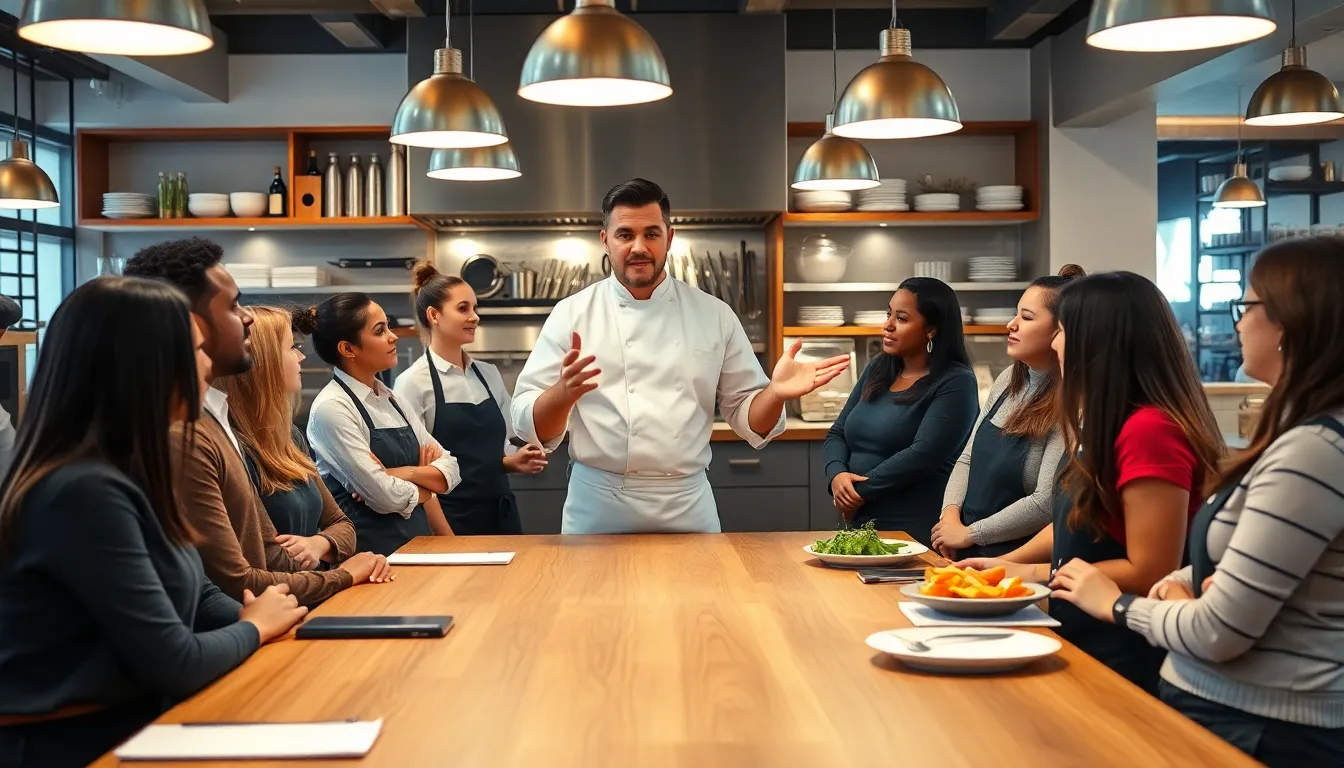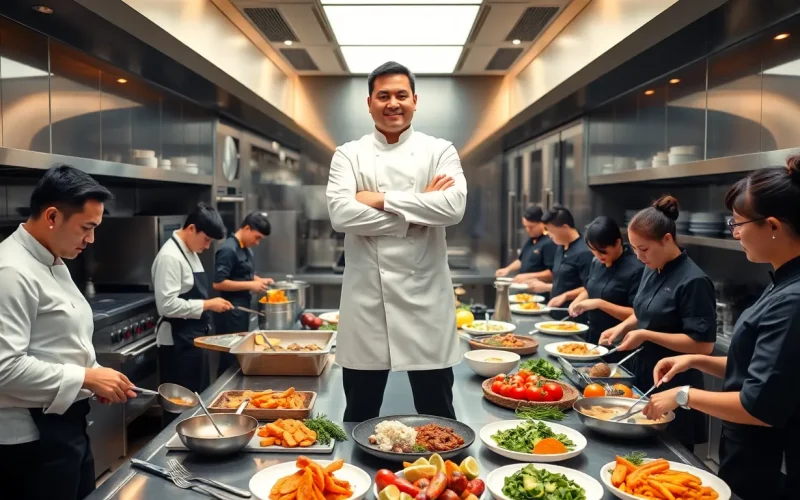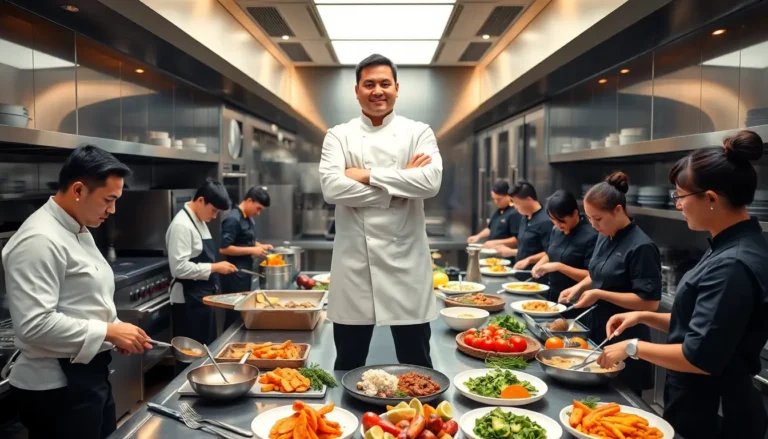Table of Contents
ToggleRunning a restaurant? It’s like conducting an orchestra, but imagine if half the musicians were confused about their parts. In the bustling world of the culinary arts, effective leadership isn’t just a bonus, it’s essential. Whether it’s managing the front of house or perfecting the kitchen’s rhythm, leaders must juggle numerous roles and responsibilities. Here, we unwrap the essential leadership lessons every restaurant owner should master. Get ready to serve up some serious insights.
The Importance of Effective Leadership in Restaurants

Leadership in a restaurant setting isn’t just about being in charge. It encompasses creating an environment where every employee feels valued and motivated. A good leader sets the tone. They inspire the team, fostering a sense of purpose and commitment. In this high-pressure environment, effective leadership can significantly influence the restaurant’s overall success. The kitchen can be chaotic, and the dining area can be daunting, but leaders need to instill confidence and clarity across their teams.
Customer satisfaction is paramount in the restaurant industry. A decisive, assertive leader can directly impact the customer experience. When employees see their leaders confident and grounded, they are more likely to mirror that behavior, eventually leading to a better customer service experience. Effective leadership, hence, is both a mental compass and a source of inspiration.
Building a Strong Team Culture
Creating a formidable team culture starts with creating bonds among staff members. Restaurant leaders need to prioritize relationship-building. Having a close-knit team not only boosts morale but ensures smoother operations on busy nights.
Communication Skills for Restaurant Leaders
Communication is the linchpin of teamwork in the restaurant industry. Leaders must convey expectations clearly while also encouraging feedback from their team. This two-way street of communication helps clarify roles and responsibilities, reducing stress and confusion. It’s essential for leaders to provide constructive criticisms without diminishing enthusiasm. They should employ active listening techniques, ensuring each staff member feels heard and valued.
Fostering Collaboration and Inclusivity
Creating an inclusive environment where all voices are heard fosters innovation and creativity. Leaders should encourage collaboration among the kitchen and service staff. Regular team-building activities can help break down barriers and encourage collaboration. When individuals feel included and valued, they’re more likely to stay engaged and committed to the restaurant’s success.
Adapting to Change and Overcoming Challenges
The restaurant industry is in constant flux. Trends change, customer preferences evolve, and unexpected challenges arise. Leaders must be nimble, adjusting strategies and practices to navigate these shifting landscapes.
Strategies for Effective Decision-Making
Proactive decision-making is crucial in a fast-paced environment. Leaders should create a framework for making decisions that’s both clear and flexible. Utilizing data insights for menu changes or staffing can help in making informed choices. During steady times, leaders can plan for inevitable changes, laying down protocols that enable agile responses when required.
Leading During Crisis Situations
Crises are inevitable, whether it’s a health scare, staffing shortages, or supply chain disruptions. A leader’s response during these trying times sets the example for the entire team. Maintaining open lines of communication, instilling trust, and providing clear guidance can help a team shoulder tough times together. Leaders should remain calm, analyzing the situation swiftly but thoughtfully.
Continuous Learning and Development
The most effective leaders view learning as an ongoing journey rather than a destination. Being receptive to new ideas and adapting to feedback can set a restaurant apart. This culture of growth can also inspire loyalty among staff.
Investing in Staff Training and Development
Offering training sessions and workshops doesn’t just boost staff skills: it shows them their growth matters. Whether it’s culinary skills or management training, investing in staff development pays off in service quality. A well-trained team leads to greater job satisfaction and lower turnover rates.
Learning from Feedback and Mistakes
Mistakes are part of the learning process. Encouraging a culture of openness, where employees feel safe to share their experiences and learn from setbacks, can lead to continuous improvement. Leaders who embrace feedback, both from customers and employees, demonstrate humility and a commitment to excellence. This openness fosters a resilient team, ready to evolve.





